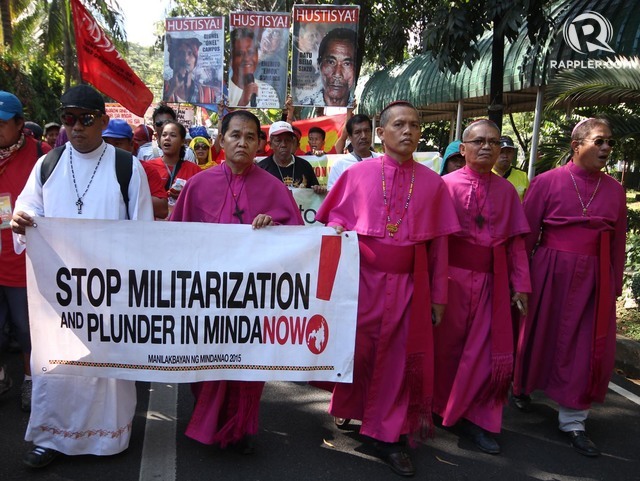Pope Benedict XVI has acknowledged that "the process of secularization has produced a serious crisis of the sense of Christian faith and the role of the Church," and Vatican would "promote a renewed evangelization" in countries where the Church has long existed "but which are living a progressive secularization of society and a sort of 'eclipse of the sense of God'." The Pope announced in at vespers on 28 June 2010, eve of the Feast of Saints Peter and Paul.
This is the way Fr. Jame H. Kroeger (he used to be my professor at the St. Francis Regional Major Seminary in the 1980s) concisely sums it, and I quoted this definition from his book, Becoming a Local Church, thus:
"This is EVANGELIZATION: the proclamation, above all, of SALVATION, from sin; the LIBERATION from everything oppressive to man; the DEVELOPMENT of man in all his dimensions, personal and communitarian; and ultimately, the RENEWAL OF SOCIETY in all its strata through the interplay of the GOSPEL TRUTHS and man's concrete TOTAL LIFE....This is our task, This is our Mission."
Then, to contextualize that in the Philippine Church setting, Archbishop Orlando B. Quevedo, O.M.I. presents the Church's "general plan for the Era of Evangelization" (http://www.kofc.org.ph/files/Year-of-Faith-Primer.pdf). It says, thus:
"We need to intensify our efforts to achieve the vision of renewal that
PCP-II and the National Pastoral Consultation on Church Renewal (NPCCR,
2001) drew up. It is a vision of renewed integral evangelization towards
a renewed Church. We may call it a vision of New Evangelization in the
Philippines. It calls for a multifaceted renewal of faith, renewal of laity,
clergy, religious, parishes, and renewal of mission. For this purpose, the
NPCCR identified nine major pastoral priorities. These are: (1) Integral
Faith Formation; (2) Renewal of the Laity; (3) Active Participation of the
Poor; (4) The Family as the Focal Point of Evangelization; (5) The Parish as
a Communion of Communities; (6) Renewal of the Clergy and Religious;
(7) Youth as Evangelized and Evangelizers; (8) Ecumenism and Inter-Religious
Dialogue; (9) Missio ad gentes."
What is being highlighted here is Church renewal as a vision of renewed integral evangeliztion. But it is also noteworthy that the Church authorities recognize as a priority the "active participation of the poor," especially in building social justice for the common good as an integral component of committed faith.
***
By definition, secularization (thanks to Wiki!) refers to the historical process in which "religion loses social and cultural significance." Secularization tends to restrict religion in modern societies. Fact is in secularized societies like the United States of America, Great Britain, Germany, Switzerland, and France, where about half of the population is not religious or atheist, religion has lost its social influence. As a principle, secularism upholds the separation of Church and State, though most major religions abide by the rules of secular, democratic society. But in the Philippines the Catholic hierarchy still wields strong political influence within the governmental system.
